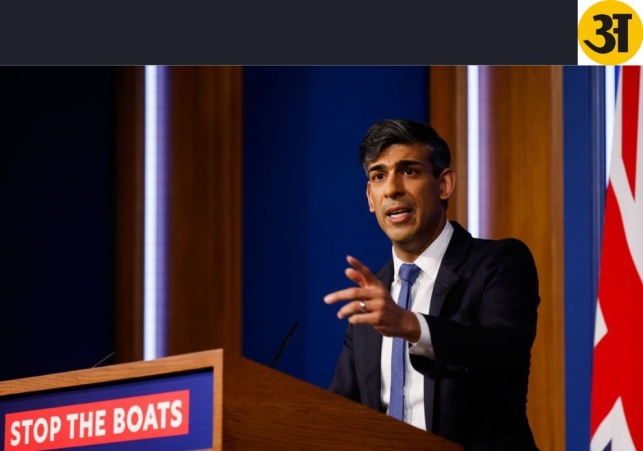
UK passes Rwanda Asylum Law as Sunak promises quick start to flights
UK Parliament approves Rwanda Asylum Law amid Sunak's pledge for imminent flights
In a significant move, the UK Parliament has approved legislation allowing asylum seekers to be sent to Rwanda. Despite initial resistance from the House of Lords, the bill was eventually passed, marking a pivotal moment in the government's immigration policy.
Sunak's promise and implementation plans
Prime Minister Rishi Sunak pledged to initiate the process of sending asylum seekers to Rwanda within 10 to 12 weeks. He assured the public that commercial charter planes had been booked, and staff trained to facilitate the transfers. Sunak's government aims to kickstart the operation swiftly, hoping it will garner support for the Conservative Party ahead of the upcoming election.
ALSO READ: Urgent safety alert: Ban imposed on MDH in Hong Kong due to Carcinogenic contamination
The legislation faced intense debate, with critics arguing that deporting asylum seekers to Rwanda instead of handling their cases domestically is inhumane. Concerns were raised regarding Rwanda's human rights record and the risk of sending individuals back to dangerous situations. Despite these objections, the law states that certain UK human rights statutes will not apply to the scheme, and Rwanda must be considered a safe destination by British judges.
Implementation challenges and legal opposition
Although the legislation has passed parliamentary hurdles, challenges remain. Charities and rights groups are prepared to challenge individual deportations, while the union representing border force staff plans to contest the law's legality. The government's plan to start deportations may face legal opposition shortly after the first asylum seekers are notified of their transfer to Rwanda.
ALSO READ: Russia threatens direct confrontation with West over Ukraine Military Aid
The passage of the Rwanda asylum law marks a significant development in the UK's immigration policy. Despite concerns and opposition, the government is determined to implement the scheme to deter illegal crossings and disrupt the operations of people-smuggling gangs. However, legal challenges and ongoing debates surrounding the law's ethical implications highlight the complexities of managing immigration policy in the UK.





